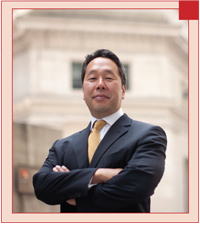
by Jiro Okochi, CEO and Co-founder, Reval
 Imagine if you could lead your treasury department to be as visionary and as iconic as, say, Apple is for many consumers and investors. There is a reason why Apple commands such a loyal fan base, and it’s not because of what they do (computers, tablets, phones, music) or how they do it (elegant design), but why they do it. In his book, Start with Why, leadership expert Simon Sinek talks about how some leaders of great companies are able to become the best at what they do – not just by how they do things better than the competition, but because they understand why they do it. Looking at treasury through this lens, perhaps we could apply Sinek’s thinking and change how treasury is viewed – not just as a cost centre, but a true, strategic partner with an inspirational vision that is alluring to everyone.
Imagine if you could lead your treasury department to be as visionary and as iconic as, say, Apple is for many consumers and investors. There is a reason why Apple commands such a loyal fan base, and it’s not because of what they do (computers, tablets, phones, music) or how they do it (elegant design), but why they do it. In his book, Start with Why, leadership expert Simon Sinek talks about how some leaders of great companies are able to become the best at what they do – not just by how they do things better than the competition, but because they understand why they do it. Looking at treasury through this lens, perhaps we could apply Sinek’s thinking and change how treasury is viewed – not just as a cost centre, but a true, strategic partner with an inspirational vision that is alluring to everyone.
Why Apple, why treasury
Sinek uses Apple and other examples to help readers see the significance in understanding why a company exists. Apple’s purpose, or its why, is to challenge the status quo. Remember the first Apple computer TV ad with a runner smashing the Orwellian Big Brother screen? The ad didn’t even feature the actual computer. Apple fans will wait in line overnight to be the first with a new iPhone or iPad. This response is like no other for a phone or tablet company on the day of their new product release because Apple fans associate themselves with the company’s why in challenging the status quo.
As a leader of your treasury organisation, getting to the essence of your why may not be easy, and you will need to be able to articulate it in a few words that capture your sense of purpose. Start with just why you chose the treasury profession, and include other important life decisions. A person or company’s why is not to be confused with a result, like making more money or being number one in your industry. Nor should it be simply what you do, like providing cash, liquidity, payment, debt, investment and risk management etc., or even how you perform these functions. This kind of thinking will only put you right back into the day-to-day, leading to incremental improvement, not visionary change. Apple would never have dreamed of entering the crowded phone market or upending the music industry if it was focused on what it did with computers, rather than why it entered the business. You could apply the same thinking to your leadership in treasury.
Sign up for free to read the full article
Register Login with LinkedInAlready have an account?
Login
Download our Free Treasury App for mobile and tablet to read articles – no log in required.
Download Version Download Version




























